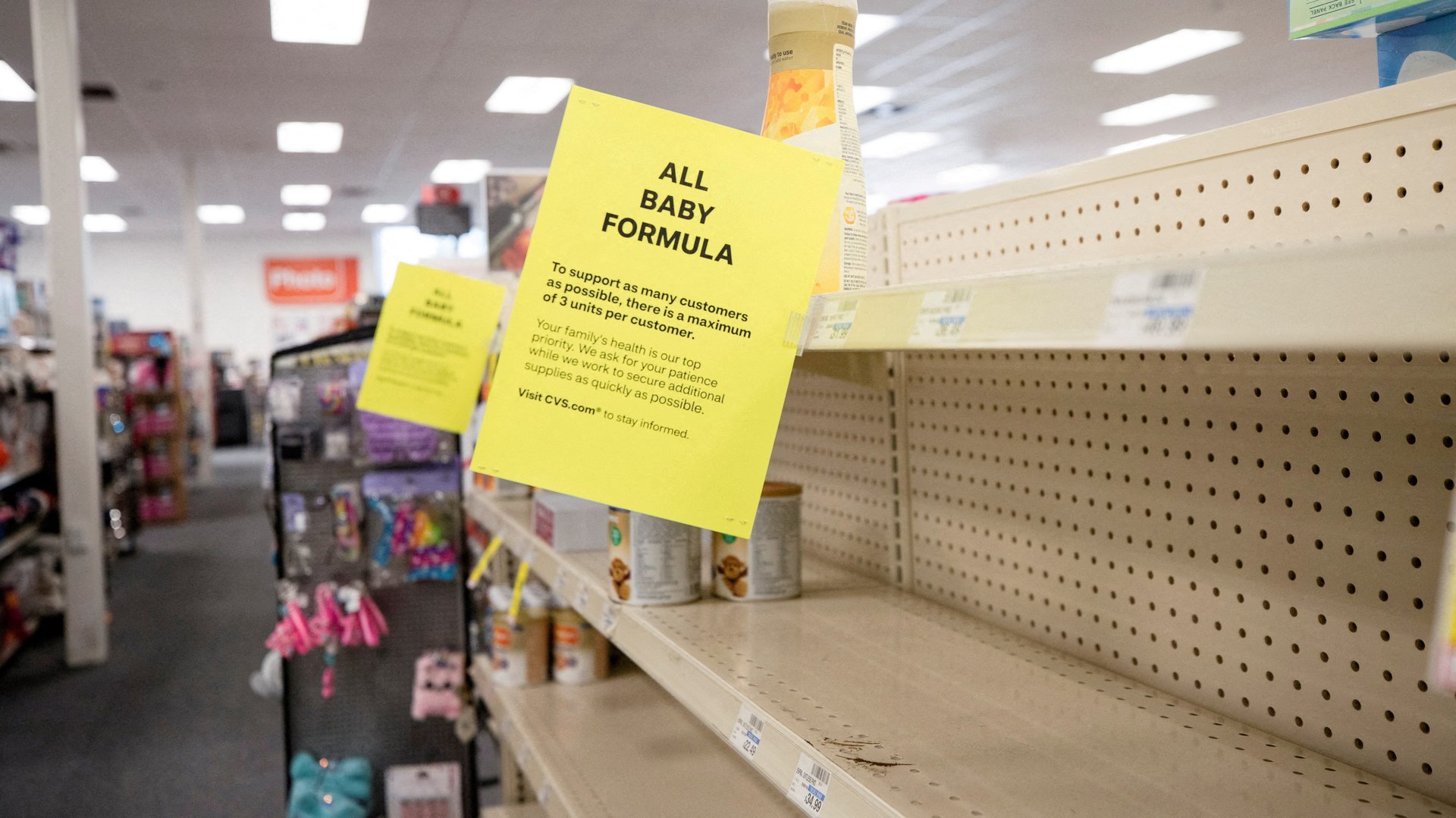America’s addiction to monopolies caused the baby food shortage
The US’ vast shortage in infant formula has one immediate cause: the suspension of operations in an Abbott Laboratories plant in Michigan earlier this year, after samples of a lethal bacteria were found in it. But beyond that lies a bigger structural problem plaguing the American economy: a tendency for many sectors to be controlled by a few companies, or even just one.


The US’ vast shortage in infant formula has one immediate cause: the suspension of operations in an Abbott Laboratories plant in Michigan earlier this year, after samples of a lethal bacteria were found in it. But beyond that lies a bigger structural problem plaguing the American economy: a tendency for many sectors to be controlled by a few companies, or even just one.
The baby food sector, for instance, is an oligopoly, in which two companies—Abbott and the Reckitt-owned Mead Johnson—dominate three-quarters of the market by sales. Further, the federal Women, Infants and Children (WIC) program, which offers supplemental nutrition for low-income families, buys and distributes nearly half of all baby formula in the US. The WIC program contracts with a specific company in each state, setting up a de facto monopoly situation. Abbott is the WIC’s contracted supplier in 34 states.
In a market of this kind, a sudden disruption can trigger a crisis—to the detriment of consumers like, in this case parents and children. The shuttering of Abbott’s Michigan plant was precisely that kind of disruption. But the US has witnessed several others over the last two years, as covid and supply chain issues snarled other sectors.
Four firms make up three-quarters of the US beef industry, for instance, so when some of their slaughterhouses closed during the pandemic, farmers couldn’t sell their livestock for processing. Bioprocessing supplies are also in the hands of just four companies, leading to crucial bottlenecks in vaccine production. In roughly two-thirds of industries in the US, competition shrank between 1997 and 2016, US census data has revealed. In the words of Sinclair Target, a data scientist at the MIT Media Lab, “The Monopolists Are Winning.”
Why do a handful of companies dominate so many US sectors?
The Open Markets Institute (OMI), a non-profit in Washington DC, maintains a list of industries in which companies have consolidated over the years. These range from the trivial to the crucial. The cowboy boot business is ruled by four brands that all belong to Berkshire Hathaway. Whirlpool bought Maytag in 2006, and by 2018, its washers and dryers constituted up to 58% of their market. “At 93 of the 100 largest [airports in the US],” the Institute finds, “one or two airlines control a majority of the market.”
A number of factors are behind this wave of consolidation. The US economy went through a sustained period of deregulation beginning in the 1970s, and a study of 1,345 mergers over 13 years found that, after deregulation, sectors progress through four stages of consolidation. Private equity firms merge and acquire firms in pursuit of efficiencies; last year, PE-led deals were worth nearly $990 billion, nearly a third of the $2.6 trillion worth of deals made in 2021.
Economists have also argued that the government’s antitrust rules have been ineffective at preventing consolidation that hurts consumers—a fact that the Biden government acknowledges. “Overly permissive antitrust policy has not only allowed markets to concentrate, increasing the market power of corporations, it has discouraged organic growth through internal expansion and investment in new plant, equipment, and employees,” said Brian Callaci, OMI’s chief economist. “Instead, corporations have increasingly turned to buying and selling already-existing assets. While this activity has enriched shareholders, investment bankers, and M&A lawyers, it has stunted real investment and created the less resilient economy we see today.”